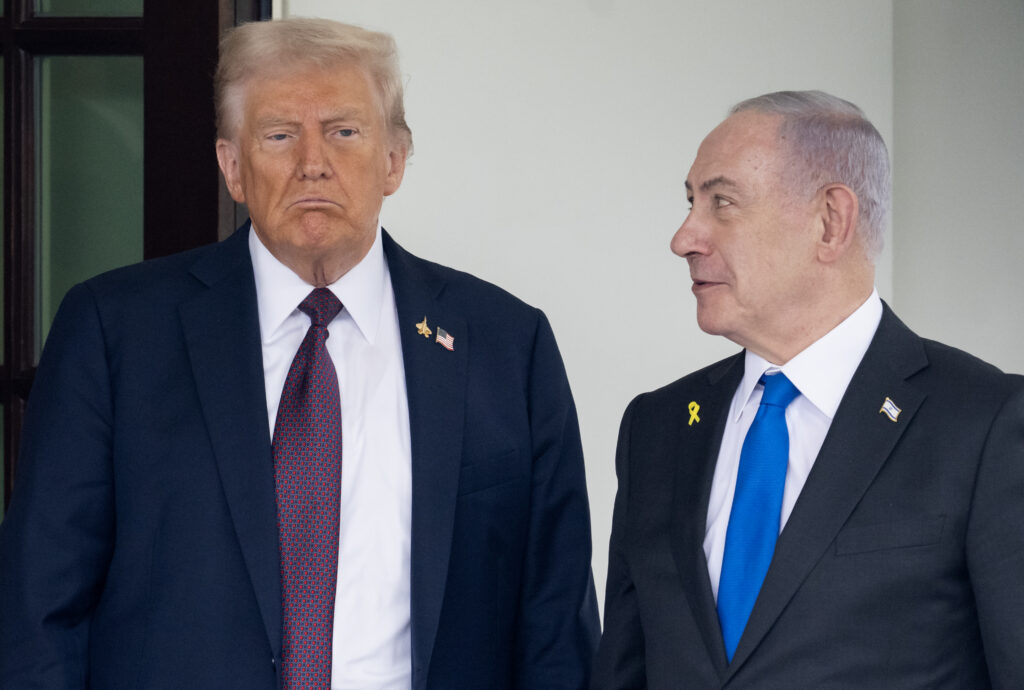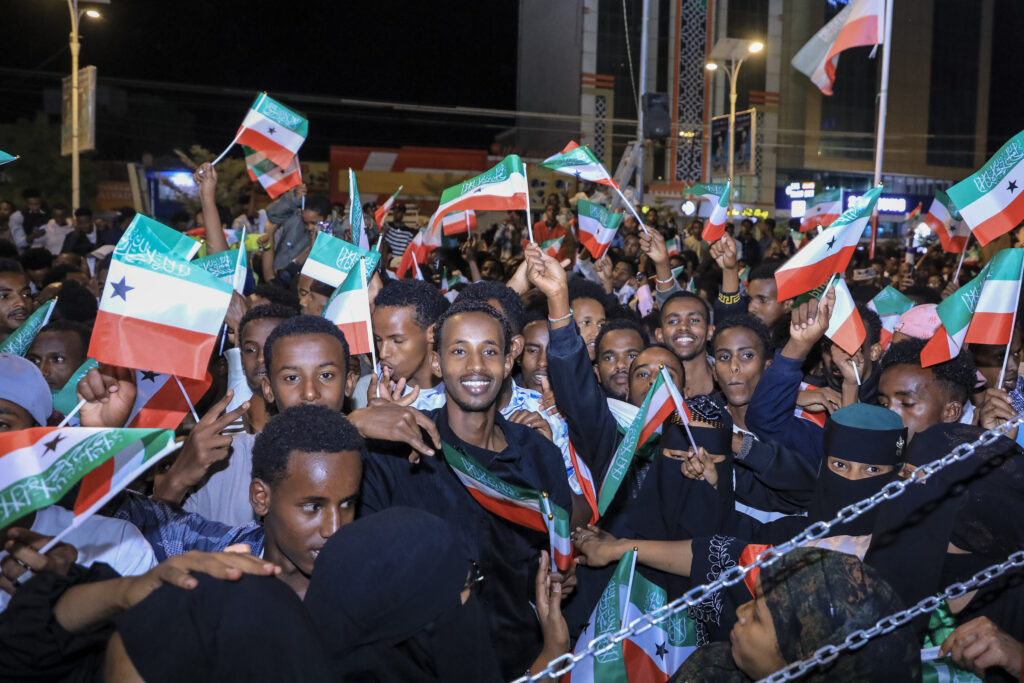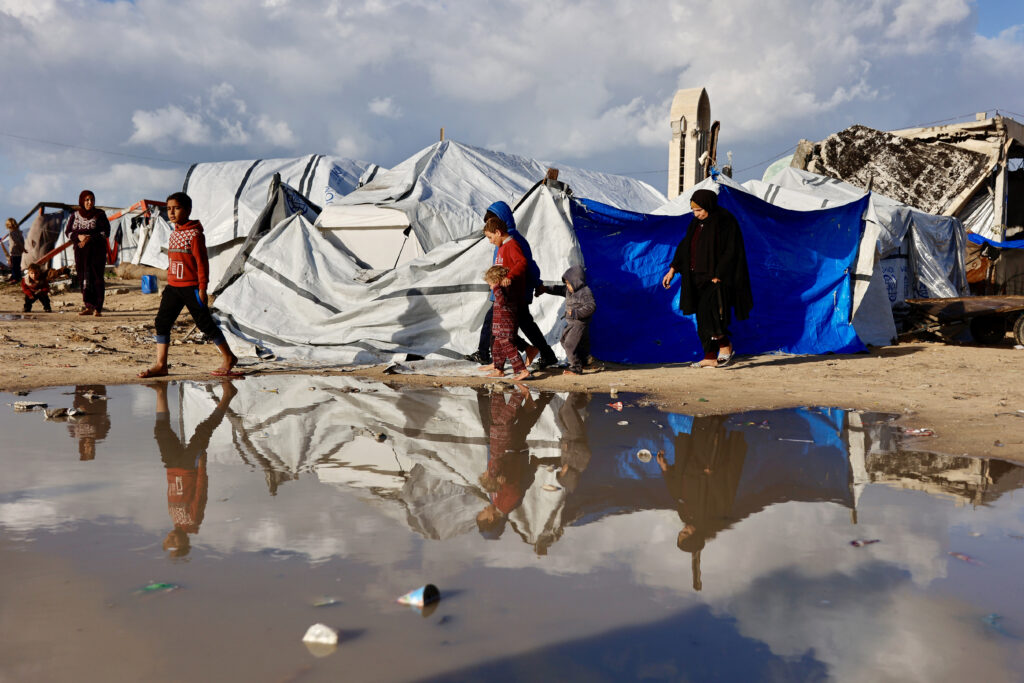AFP Asia Business
Netanyahu to meet Trump in Florida for crucial Gaza talks
Israeli Prime Minister Benjamin Netanyahu will meet Donald Trump in Florida on Monday, with the US president pushing to move to the next stage of the fragile Gaza truce plan.The crucial meeting at Trump’s lavish Mar-a-Lago resort comes as some White House officials fear both Israel and Hamas are slow-walking the second phase of their ceasefire.Trump, who said Netanyahu had asked for the talks, is reportedly keen to announce — as soon as January — a Palestinian technocratic government for Gaza and the deployment of an international stabilization force.The two leaders are to meet at 1 pm (1800 GMT), the White House said.Israeli government spokeswoman Shosh Bedrosian said Netanyahu would discuss the second phase, which involves making sure that “Hamas is disarmed, Gaza is demilitarized.”But Netanyahu will also try to shift the focus onto Iran during his fifth meeting in the United States with Trump this year, amid reports he will push for more US strikes on Tehran’s nuclear program.Netanyahu would also bring up the “danger Iran poses not only to the region of the Middle East, but the United States as well,” Bedrosian said before flying out with the Israeli premier.Netanyahu’s visit caps a frantic few days of international diplomacy in Palm Beach, where Trump hosted Ukrainian counterpart Volodymyr Zelensky on Sunday for talks on ending Russia’s invasion.The Gaza ceasefire in October is one of the major achievements of Trump’s first year back in power, but his administration and regional mediators want to keep up the momentum.Trump’s global envoy Steve Witkoff and son-in-law Jared Kushner hosted senior officials from mediators Qatar, Egypt and Turkey in Miami earlier this month.The timing of the Netanyahu meeting is “very significant,” said Gershon Baskin, the co-head of peacebuilding commission the Alliance for Two States, who has taken part in back-channel negotiations with Hamas.”Phase two has to begin,” he told AFP, adding that “I think the Americans realize that it’s late because Hamas has had too much time to re-establish its presence.” – ‘Going nowhere’ -The first phase of the truce deal saw Hamas release the remaining hostages, both dead and alive, from the October 7, 2023 attack on Israel. Hamas has returned all but the body of one hostage. Both sides allege frequent ceasefire violations.Under the second stage, Israel is supposed to withdraw from its positions in Gaza, while Hamas is supposed to lay down its weapons — a major sticking point for the Islamist movement.An interim authority is meanwhile meant to govern the Palestinian territory, and the international stabilization force (ISF) is to be deployed.The Axios news outlet reported on Friday that Trump wanted to convene the first meeting of a new Gaza “Board of Peace” that he will chair at the Davos forum in Switzerland in January.But it said that senior White House officials were growing exasperated with what they viewed as efforts by Netanyahu to stall the peace process.”There are more and more signs that the American administration is getting frustrated with Netanyahu,” said Yossi Mekelberg, a Middle East expert at London-based think-tank Chatham House.”The question is what it’s going to do about it,” he added, “because phase two is right now going nowhere.”For his part, Netanyahu is set to focus with Trump on Iran’s nuclear program, which the United States and Israel struck in June but which Israel fears Tehran is rebuilding.Israel is also continuing to strike Hamas targets in Gaza and Hezbollah in Lebanon despite a ceasefire there. Syria will also be on the agenda.Mekelberg said Netanyahu could be attempting to shift attention from Gaza onto Iran as Israel enters an election year.”Everything is connected to staying in power,” he said of the long-time Israeli premier.
Somaliland recognition prompts celebrations, condemnation
People gathered in several towns in the breakaway region of Somaliland on Sunday to celebrate its recognition by Israel — a decision condemned by the Somali president as a “threat” to stability in the Horn of Africa.Israel announced on Friday it was officially recognising Somaliland, a first for the self-proclaimed republic that in 1991 declared it had unilaterally separated from Somalia.On Sunday, the leader of the Houthis warned that any Israeli presence in Somaliland would be considered a “military target”. Somaliland, which has for decades pushed for international recognition, enjoys a strategic position on the Gulf of Aden and has its own money, passport and army.Thousands of people thronged a stadium in the capital Hargeisa, where many dressed in the green, white and red colours of Somaliland’s flag.”Victory for Somaliland!” they chanted.The flag was hoisted alongside that of Israel in a ceremony broadcast live by Somaliland television stations.”Mass celebrations are taking place in Hargeisa and across cities of the Republic of Somaliland, as citizens proudly gather to commemorate the historic decision by the Government of Israel,” Somaliland’s foreign ministry said on X.”We welcome every country that recognises our existence,” Jama Suleyman, a resident of Hargeisa, told AFP.”For the people of Somalia, our neighbours should not be concerned about this victory; we know they are making noises, but there is nothing that will make Somaliland stop from aiming high,” he added.- ‘Violations’ – Local authorities questioned by AFP said gatherings were also held in the central town of Burao, and in Gebiley in the east.They came as Somali President Hassan Sheikh Mohamud addressed an emergency parliamentary session, calling Israel’s decision as “tantamount to a blunt aggression against the sovereignty, independence, territorial integrity, and the unity of the people of the Somali Republic”.He added that “the violations of (Israeli Prime Minister Benjamin) Netanyahu and his attempts to divide the Federal Republic of Somalia is (a) threat to the security and stability of the world and the region”.Later Sunday, chief Abdulmalik al-Houthi, leader of Yemen’s Houthi rebels, issued a warning to Israel.”We consider any Israeli presence in Somaliland a military target for our armed forces, as it constitutes aggression against Somalia and Yemen, and a threat to the security of the region,” he said in a statement.Israel’s recognition of Somaliland was “a hostile stance targeting Somalia and its African surroundings, as well as Yemen, the Red Sea, and the countries along both shores of the Red Sea”, he added. – ‘Will not create violence’ -Somaliland has been diplomatically isolated since its unilateral declaration of independence, even if it has generally experienced greater stability than Somalia, where Al-Shabaab Islamic militants periodically mount attacks in the capital Mogadishu.Regional analysts believe that a rapprochement with Somaliland would provide Israel with better access to the Red Sea, enabling it to hit Houthi rebels in Yemen.Israel repeatedly struck targets in Yemen after the Gaza war broke out in October 2023, in response to Houthi attacks on Israel that the rebels said were in solidarity with Palestinians in the Gaza Strip. The Iran-backed Houthis have halted their attacks since a fragile truce began in Gaza in October.In addition, press reports a few months ago said Somaliland was among a handful of African territories willing to host Palestinians expelled by Israel.”Somalia will never accept the people of Palestine to be forcibly evicted from their rightful land to a faraway place, let it be Somalia or elsewhere,” Mohamud told parliament. But at the Hargeisa rally, Khadar Hussein Abdi, minister of the presidency of Somaliland, sought to allay fears.”The recognition and the arrival of Israel will not create violence, will not bring conflict and will never harm anyone,” he said.Somaliland will collaborate with Israel on improving the economy, agricultural production and on water, he added.Israel’s recognition of Somaliland was criticised by the African Union, Egypt, Turkey, the six-nation Gulf Cooperation Council and the Saudi-based Organisation of Islamic Cooperation. The European Union insisted Somalia’s sovereignty should be respected.burs-jj/jh
‘Shivering from cold and fear’: winter rains batter displaced Gazans
It only took a matter of minutes after the heavy overnight rain first began to fall for Jamil al-Sharafi’s tent in southern Gaza to flood, drenching his food and leaving his blankets sopping wet.The winter rains have made an already precarious life worse for people like Sharafi, who is among the hundreds of thousands in the Palestinian territory displaced by the war, many of whom now survive on aid provided by humanitarian organisations.”My children are shivering from cold and fear… The tent was completely flooded within minutes,” Sharafi, 47, said on Sunday. “We lost our blankets, and all the food is soaked,” added the father of six, who lives in a makeshift shelter with his children in the coastal area of Al-Mawasi.A fragile ceasefire between Israel and Hamas has been in place since October 10, following two years of devastating fighting.But despite the truce, Gazans still face a severe humanitarian crisis, and most of those displaced by the war have been left with little or nothing.Families are crowded into camps of tents hastily erected from tarpaulins, which are often surrounded by mud and standing water when it rains.”As an elderly woman, I cannot live in tents. Living in tents means we die from the cold in the rain and from the heat in the summer,” said Umm Rami Bulbul.”We don’t want reconstruction right now, just provide us and our children with mobile homes.”Nighttime temperatures in Gaza have ranged between eight and 12 degrees Celsius in recent days.- Insufficient aid -Nearly 80 percent of buildings in the Gaza Strip have been destroyed or damaged by the war, according to United Nations data. And about 1.5 million of Gaza’s 2.2 million residents have lost their homes, said Amjad Al-Shawa, director of the Palestinian NGO Network in Gaza.Of more than 300,000 tents requested to shelter displaced people, “we have received only 60,000″, Shawa told AFP, pointing to Israeli restrictions on the delivery of humanitarian aid into the territory.The UN refugee agency for Palestinians, UNRWA, said the harsh weather had compounded the misery of Gazans.”People in Gaza are surviving in flimsy, waterlogged tents & among ruins,” UNRWA chief Philippe Lazzarini wrote on X.”There is nothing inevitable about this. Aid supplies are not being allowed in at the scale required.”COGAT, the Israeli defence ministry body responsible for Palestinian civilian affairs, said in mid-December that “close to 310,000 tents and tarpaulins entered the Gaza Strip recently” as part of an increase in aid under the ceasefire.Earlier this month, Gaza experienced a similar spell of heavy rain and cold. The weather caused at least 18 deaths due to the collapse of war-damaged buildings or exposure to cold, according to Gaza’s civil defence agency, which operates under Hamas authority.On December 18, the UN’s humanitarian office said that 17 buildings collapsed during the storm, while 42,000 tents and makeshift shelters were fully or partially damaged.”Look at the state of my children and the tent,” said Samia Abu Jabba.”I sleep in the cold, and water floods us and my children’s clothes. I have no clothes for them to wear. They are freezing,” she said.”What did the people of Gaza and their children do to deserve this?”



